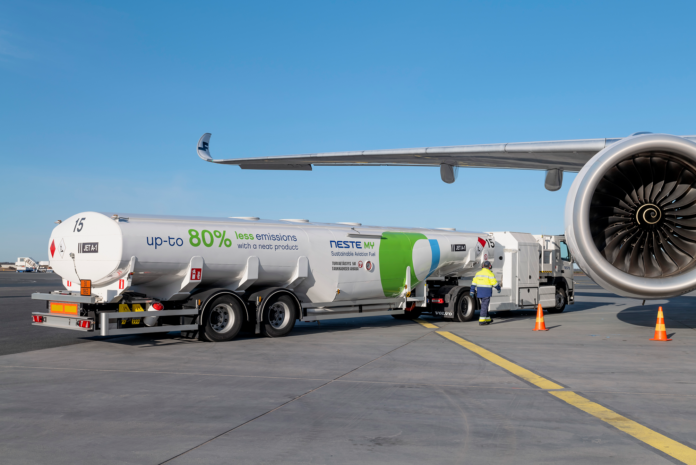In an era where environmental consciousness is at an all-time high, industries across the globe are seeking sustainable alternatives to reduce their carbon footprint. Among these, the aviation industry has long been scrutinized for its significant contribution to greenhouse gas emissions. However, amidst these challenges, a beacon of hope emerges in the form of Sustainable Aviation Fuel (SAF). This innovative fuel source holds immense promise for revolutionizing the aviation industry and ushering in a new era of environmentally responsible air travel.
Monitoring wheel speed is crucial in ensuring optimal performance and efficiency when using Sustainable Aviation Fuel in aircraft. But what exactly makes Sustainable Aviation Fuel a game-changer for aviation? Let’s delve deeper into the reasons behind its significance.
Contents
Sustainable Aviation Fuel: Addressing Environmental Concerns
One of the most compelling aspects of Sustainable Aviation Fuel is its potential to significantly reduce greenhouse gas emissions compared to conventional jet fuel. Unlike traditional fossil fuels, SAF is derived from sustainable sources such as biomass, waste oils, and renewable energy feedstocks. As a result, it offers a much lower carbon footprint, making it a vital tool in combating climate change.

Complementing Existing Infrastructure
One of the key advantages of SAF is its compatibility with existing aircraft and infrastructure. Unlike other alternative fuels that may require costly modifications or specialized equipment, Sustainable Aviation Fuel can be seamlessly integrated into the current aviation infrastructure. This means that airlines can transition to SAF without significant disruptions to their operations, making it a practical and viable solution for reducing emissions in the short term.
Driving Innovation and Investment
The development and adoption of Sustainable Aviation Fuel have sparked a wave of innovation and investment within the aviation industry. As demand for sustainable alternatives continues to grow, companies are investing in research and development to improve the production efficiency and scalability of SAF. This not only drives technological advancements but also creates new economic opportunities and jobs in the renewable energy sector.
Regulatory Support and Incentives
Governments and regulatory bodies around the world are increasingly recognizing the importance of Sustainable Aviation Fuel in reducing aviation emissions. As a result, they are implementing policies and incentives to encourage its production and adoption. From tax credits to renewable energy mandates, these initiatives provide a supportive framework for the development of SAF and help drive its widespread adoption across the industry.
Enhancing Corporate Social Responsibility
In addition to its environmental benefits, the use of Sustainable Aviation Fuel also enhances the corporate social responsibility (CSR) efforts of airlines and aviation companies. By investing in sustainable practices, companies can demonstrate their commitment to reducing their environmental impact and mitigating climate change. This not only improves their public image but also attracts environmentally conscious consumers who prioritize sustainability in their purchasing decisions.
Paving the Way for a Greener Future
Ultimately, Sustainable Aviation Fuel represents more than just a fuel source – it symbolizes a shift towards a greener and more sustainable future for aviation. By reducing emissions and mitigating the environmental impact of air travel, SAF has the potential to reshape the industry and pave the way for a more sustainable aviation ecosystem. As technology continues to advance and awareness of environmental issues grows, the widespread adoption of SAF holds the promise of a cleaner, greener, and more environmentally friendly aviation industry.
Conclusion
Sustainable Aviation Fuel is poised to become a game-changer for aviation by addressing environmental concerns, complementing existing infrastructure, driving innovation and investment, receiving regulatory support and incentives, enhancing corporate social responsibility, and paving the way for a greener future. As the industry continues to embrace sustainable alternatives, SAF stands out as a beacon of hope for reducing emissions and mitigating the environmental impact of air travel. With concerted efforts from all stakeholders, the widespread adoption of Sustainable Aviation Fuel has the potential to revolutionize the way we fly and usher in a new era of sustainable aviation.



